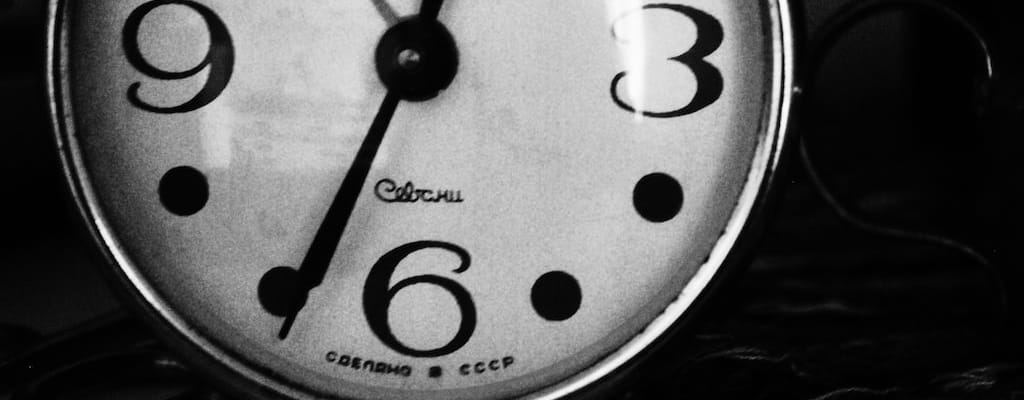one’s hour: Idiom Meaning and Origin
What does ‘one's hour’ mean?
The idiom one's hour refers to a moment or period of time when a person receives recognition, achieves success or has the opportunity to shine in their field or profession.

Idiom Explorer
The idiom "woman of the hour" refers to a woman who is the most important or prominent person at a particular moment or event.
The idiom "pay one's dues" means to fulfill obligations or requirements, often through hard work or sacrifice, in order to achieve success or gain a certain position.
The idiom "on one's watch" means being responsible for something or someone during one's assigned time or period of duty.
The idiom "one's ship comes in" means when someone finally achieves success or has a stroke of good luck, especially after a long wait or effort. It refers to the idea of a ship carrying prosperity or fortune arriving at the person's destination.
The idiom "one's days are numbered" means that someone is likely to die soon or that their life will come to an end in the near future.
An idiom, "one moment," is often used to ask for a brief pause or to indicate a short delay in a conversation or an action.
The idiom "one-hit wonder" refers to a person or thing that experiences a brief period of success or fame, particularly in the music industry, but is unable to repeat or sustain that success in the long term.
The idiom "of an" is used to emphasize a particular quality or characteristic of someone or something. It indicates that the quality being mentioned is extremely notable or outstanding.
The idiom "nut-cutting time" refers to the critical moment when decisive action needs to be taken in order to achieve a desired outcome.
The idiom "not a minute too soon" means that something happens or arrives at the exact time needed, often just before it would have been too late or after a long wait.
Unveiling the Hidden Power
The idiom "one's hour", often used in the phrase "one's hour has come", is a metaphorical expression that indicates a significant moment or time of triumph in a person's life. This idiomatic phrase has its roots in various historical and cultural contexts, where the concept of time and fate has played a significant role in human understanding and literature.
The etymology of this idiom can be traced back to ancient civilizations, where time was often personified as a deity, bestowing fortunes and misfortunes upon individuals. In Greek mythology, the Moirai, or Fates, determined the destiny of every person, and their decisions were represented as threads spun, measured, and cut at specific moments. This concept of fate and the idea of a predetermined time for personal success or downfall influenced the development of idiomatic expressions related to time and opportunity.
The idiom "one's hour" gains further prominence in the context of religious and biblical references. The Bible uses the notion of time as a divine instrument, highlighting the significance of particular moments and their alignment with God's plan. Examples of such references can be found in Ecclesiastes 3:1-8, where specific actions and events are assigned to appointed times. These biblical references offer a rich source of inspiration for idiomatic expressions related to the concept of time and its impact on human lives.
In literature, the idiom "one's hour" finds its place in various works, underscoring pivotal moments in characters' lives, often resulting in great success or downfall. William Shakespeare's plays, for instance, are replete with metaphors surrounding time and its influence on human destiny. In Julius Caesar, Mark Antony famously declares, "The fault, dear Brutus, is not in our stars, but in ourselves, that we are underlings," emphasizing personal responsibility for seizing the opportune moment when it arises.
Furthermore, the idiom "one's hour" has permeated modern usage, extending beyond cultural and literary references. In contemporary contexts, it is often used to describe the long-awaited or anticipated moment of recognition, achievement, or triumph in an individual's life. This could range from a breakthrough in one's career, an important personal accomplishment, or even the fulfillment of a lifelong dream.
The idiom "one's hour" is related to several other idioms that also revolve around the concept of time and significant moments in one's life. One such idiom is "finest hour." When someone refers to their "finest hour," they are highlighting a specific moment or period in their life when they achieved greatness or performed at their very best. It is a time of triumph, when all their efforts and abilities come together to produce remarkable results.
Another related idiom is "have one's moments." This expression implies that a person has experienced various moments of excellence, brilliance, or success throughout their life. While they may not have a single standout moment like their "finest hour," they have had multiple instances where they have shined or excelled in different endeavors.
"moment in the sun" is yet another related idiom. It refers to a brief but significant period of recognition, fame, or attention in someone's life. It is a time when an individual experiences the spotlight and gains public admiration or acknowledgment, much like when the sun shines brightly on something and draws everyone's attention.
"woman of the hour" is an idiom that specifically refers to an exceptional or celebrated woman at a particular moment in time. It suggests that a woman is the center of attention, admiration, or recognition due to her achievements, skills, or contributions. She is praised and recognized as a standout figure during her "hour," which can represent a specific event, occasion, or phase in her life.
Lastly, the idiom "hour of need" signifies a crucial or critical time in a person's life when they require assistance, support, or understanding the most. It is a period of difficulty or adversity when individuals often rely on others for help or guidance. It reflects the significance of timing and the need for support during challenging times.
As with any idiom, the meaning and interpretation of "one's hour" can vary depending on the context in which it is used. It is a multifaceted expression that resonates with individuals on an emotional level, evoking notions of destiny, timing, and the inherent potential for greatness in each person's life. It reminds us that despite the challenges and setbacks we may face, there is always the possibility of realizing our full potential when our hour arrives.
Example usage
Examples of how the idiom "one's hour" can be used in a sentence:
- After years of hard work, she finally had her hour of fame when her artwork was featured in a prestigious gallery.
- He patiently waited for his hour to shine, and when the opportunity arose, he gave a stunning performance on stage.
- It was clear that the politician's hour had arrived when she won the election by a landslide and became the country's youngest leader.
More "Time" idioms



